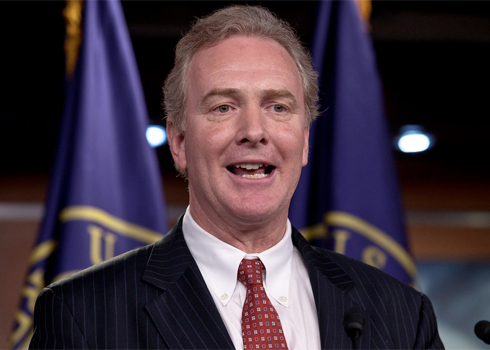Many Democrats would like to see the deficit Super Committee’s forthcoming fiscal plan scored for its expected impact on economic growth. The idea is that if the Congressional Budget Office says the plan is a job killer, it won’t pass, and members will figure out how to make it economically neutral or better.
The Super Committee’s been cool to the idea so far, but one of its members, Rep. Chris Van Hollen (D-MD) has helpfully underscored why economic growth (or lack thereof) is such a key issue, even if all you care about are budget deficits.
“I asked CBO to estimate the size of the deficit if the economy were at full employment, and CBO’s response confirms that our weak economy is the major contributing factor, accounting for over one third of the projected deficit for fiscal year 2012,” Van Hollen said in a statement last night. “It’s clear that the fastest and most effective ways to reduce the short term deficit is to put Americans back to work.”
Here’s how CBO puts it. Under full employment, “the projected federal deficit under current law in fiscal year 2012 would be about a third lower, or roughly $630 billion instead of the $973 billion projected in CBO’s most recent baseline. That deficit would be equal to about 4.0 percent of gross domestic product (GDP), compared with the 6.2 percent deficit projected for 2012 in CBO’s baseline.
Obviously members of Congress can’t snap their fingers and restore full employment. But the point is the eye-popping deficits Republicans used to force a year-long fight over the budget — and thus, the role of government — has nothing to do with President Obama’s policies and everything to do with the sluggish economy. Revive it, and deficits return to their Bush-era levels when Republicans said deficits didn’t matter.
Read the CBO report here.










